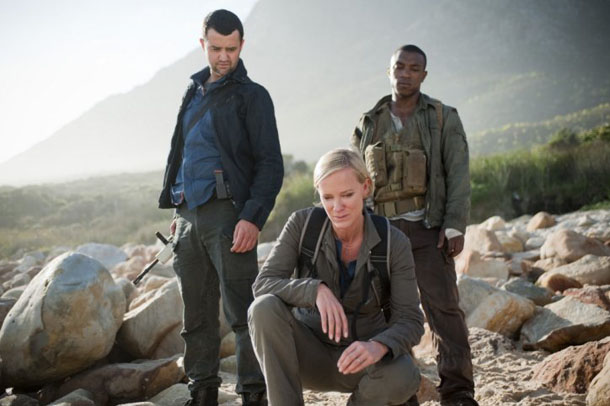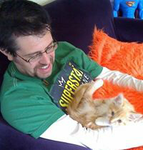BLOG Spartacus On Carpathia
None
Alasdair Stuart comes out of the closet and admits he likes Outcasts too…

There’s a moment towards the end of Spartacus (the original movie, not the TV series) where the Romans offer the Gladiator army amnesty if Spartacus gives himself up. Without a second’s hestitation, he stands and yells his name only to find one, then another, then another of his army have done it first. They’re all Spartacus, they all rise, they all fall, together.
A couple of days ago, my blogger colleague John Cooper stood up in defence of Outcasts . The show is being moved to a late night Sunday slot, its ratings are dropping and it looks increasingly likely it will run for a single season. There are three reasons why that shouldn’t happen. Or, to put it another way, it’s my turn to be Spartacus.
What happpens after the world ends? How do you go on? It’s a question that’s driven a lot of SF, especially TV and cinema, with everything from Mad Max to Reign of Fire and Children of Men exploring slow, fast, violent and quiet armageddons. What Outcasts does is a little more dangerous and a lot more subversive; it's about what happens after we’re given the chance to start over, when the slate is wiped clean and some of us find that we’re still writing the same things on it. Carpathia’s an uncharted world but it’s not an untainted one. People still lie, cheat, still, kill. People still bicker and fight and are as venal and stupid and selfish as they were on Earth.
This isn’t the, admittedly, very attractive utopia of Star Trek where everyone pulls together or even the sectarian society of Battlestar Galactica . Forthaven is a city inhabited by us, the flawed, the frightened, the desperate, the last. Everyone wants to be better but if there's one thing humanity excels at more than making bad decisions, it's realising that we have to live with them once we’ve made them. The attempted genocide of the ACs, the callous selection process hinted at by Tipper Malone, even the choice of Carpathia itself all combine to give the series a sense of unease that sits deep in its structure and the bones of its stories. This isn’t a brave new world, it’s a spiky, difficult, unsettling one and it’s the only one we’ve got. Whilst the comparisons to Firefly ’s ’verse and Galactica ’s fractious fleet are understandable, the inhabitants of Cartpathia are, if anything, closer to Lost ’s castaways. They don’t want to live together, but they’re starting to die alone.
The show cleverly focusses in on this idea, of humanity rebuilding itself in the ruins, and uses that concept as a delivery system for its science fictional elements. Four episodes in, Outcasts has given us tailored cloning, clone rights, cerebral scanning and visualisation and the increasingly strong possibility that we’ve been on Carpathia before. All of this is presented in such a matter of fact way that it can be read very easily as the show being embarrassed about its SF elements. To be blunt, it's a TV series about the last humans trying to survive on a hostile alien world. A premise like that doesn’t just wear its SF elements on its sleeve – that sleeve is silver, shiny and has a mission patch on the shoulder.
This pragmatic approach is married with the sort of gleeful subversion that Kudos has become known for. Let’s not forget, this isn’t just the company that pioneered the “no one is safe” mantra on Spooks but also put Life on Mars and Ashes to Ashes on the screen, both of which are pretty much the definition of a hard sell. Kudos take risks, and the risks they’ve taken with Outcasts are plain to see; slow start, gradual folding in of plot and concept, grim overall tone. Witness the events of the first episode; the deaths of both Mitchell and Karina Hoban and the destruction of the final transport from Earth. This is not a pleasant or easy series and the show’s crime is not that it’s taken this approach, but that the first episode in particular suffered from stilted pacing and a crucial lack of urgency. Its basic premise is sound, the cast are top rate and the momentum’s really starting to build into something which has the potential to be fascinating, smart, large scale SF TV. Whether it gets that chance or not is very much in question.
Get sneak previews, exclusive competitions and details of special events each month!
I don’t speak out in defence of every new struggling show, because some don’t deserve it. I didn’t make it to the end of The Deep and I never got past the first couple of episodes of V because I didn’t connect with either of them. I have connected with Outcasts , there’s something interesting, something different here, a genuine attempt to do serious science fiction which deserves a chance to shine. Or to put it another way, I’m Alasdair Stuart and I like Outcasts .

Dave is a TV and film journalist who specializes in the science fiction and fantasy genres. He's written books about film posters and post-apocalypses, alongside writing for SFX Magazine for many years.


